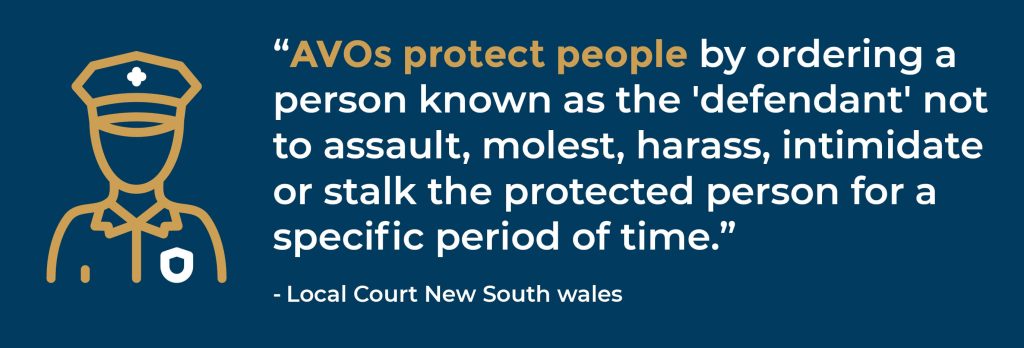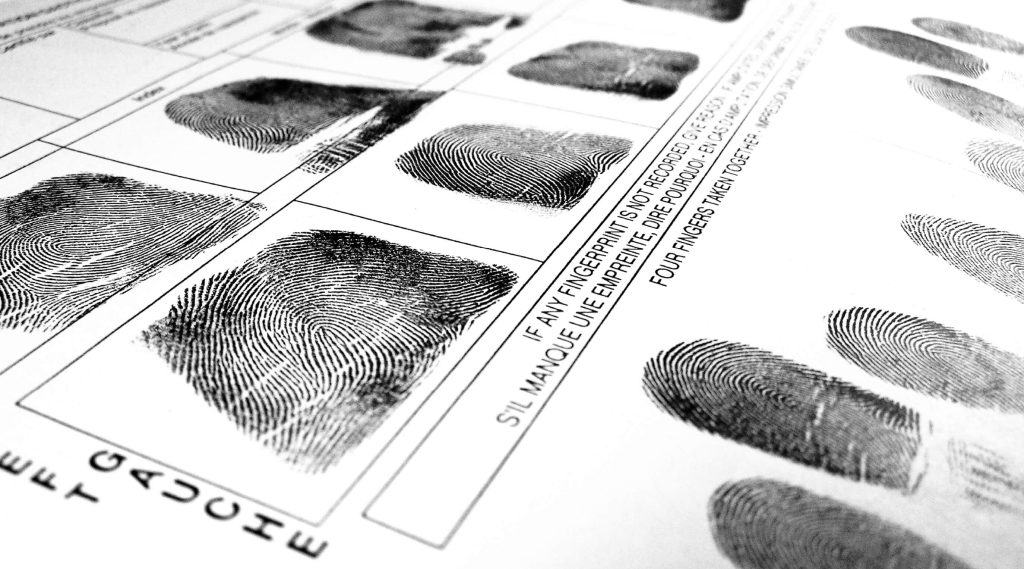
NEWS
A Comprehensive Guide To Apprehended Violence Orders (AVO)
Are you familiar with Apprehended Violence Orders (AVOs)? Whether you’re the one seeking protection or the individual facing allegations, knowing about AVOs is crucial. These legal measures serve as shields against potential harm, but they also impact the lives of both the applicant and the respondent in profound ways.
In this comprehensive guide, we will dive into the intricacies of AVOs, unravelling the complexities in simple terms for both applicants and respondents alike. This guide will equip you with the knowledge and understanding necessary to navigate the world of Apprehended Violence Orders with confidence and clarity.
What Is An Apprehended Violence Order (AVO)?
Simply put, an Apprehended Violence Order, or AVO, is a legal document aimed at protecting individuals from violence, harassment, or intimidation.

Here’s how it works: If someone feels threatened or unsafe due to another person’s actions, they can apply for an AVO through the court. This application outlines the specific behaviours or actions the person wants protection from. Once granted, the AVO sets clear boundaries, prohibiting the person causing fear or harm from engaging in certain activities, like contacting the protected individual or coming near their home or workplace.
AVOs operate within a robust legal framework designed to ensure fairness and justice. Each state or territory in Australia has its own laws governing AVOs, but the fundamental principles remain consistent: protecting individuals from violence and providing legal recourse for those in danger.
Courts carefully consider evidence and circumstances before granting an AVO, ensuring that it’s a necessary and proportionate measure to safeguard the applicant’s safety.
Types Of AVOs
Apprehended Domestic Violence Orders (ADVOs): ADVOs specifically address domestic violence situations, where the victim has a domestic relationship with the person causing harm. This includes spouses, partners, family members, or anyone living together.
Apprehended Personal Violence Orders (APVOs): APVOs cover situations where there isn’t a domestic relationship between the parties involved. These orders are for situations like stalking, harassment, or threats from someone outside the victim’s household.
What Does Having An AVO Mean?
When someone is issued an AVO, it means there are restrictions and conditions placed on their behaviour to ensure the safety of another person, known as the protected person. These restrictions often include staying away from the protected person’s home, workplace, or school. The respondent, the person the AVO is against, must also refrain from contacting the protected person directly or indirectly, including via phone calls, texts, emails, or social media. Additionally, the respondent may be prohibited from approaching or intimidating the protected person.
These limitations aim to prevent further harm and maintain a safe environment for all involved.
What Can You Get An AVO For?
Circumstances and behaviours that could lead to the issuance of an AVO vary widely but often involve instances where someone feels threatened or unsafe. Actions such as physical violence, verbal abuse, stalking, harassment, or even repeated unwanted contact via phone or online platforms could prompt the need for an AVO.
For instance, if someone repeatedly follows, threatens, or intimidates another person, whether in person or through digital means, it could be grounds for an AVO. Similarly, instances of physical violence or property damage, such as assault or vandalism, may also result in the issuance of an AVO to protect the victim from further harm.
How Serious Is An AVO?
For individuals involved, whether as the applicant seeking protection or the respondent facing restrictions, the impact can be significant. AVOs can restrict communication, proximity, and certain behaviours, aiming to prevent further conflict and ensure safety for all parties.
Breaching an AVO carries serious consequences, including potential fines and imprisonment. It’s important to understand the gravity of an AVO and the legal obligations it entails to ensure compliance and prioritise the safety and well-being of everyone involved.
Does An AVO Stay On Your Record Forever?
AVOs aren’t necessarily permanent fixtures on your legal history. The duration they remain on record can vary depending on several factors, including the jurisdiction you’re in and the circumstances surrounding the issuance of the order.

In some cases, AVOs may stay on your record indefinitely, while in others, there might be avenues for removal or expungement under certain conditions, such as demonstrating rehabilitation or proving a change in circumstances.
What Happens If You Plead Guilty To An AVO?
If someone pleads guilty to the conditions of an AVO, it means they admit to the allegations made against them. Legal repercussions for this plea can vary but often include fines, community service, or even imprisonment, depending on the severity of the offence.
Additionally, pleading guilty to an AVO can have long-term consequences for the respondent. It may affect their employment opportunities, especially if their job requires a clean legal record. Future relationships could also be impacted, as a guilty plea might raise concerns about their behaviour and trustworthiness. Overall, admitting guilt to an AVO can significantly influence a person’s life beyond just the immediate legal consequences.
Do I Need a Lawyer To Fight An AVO?
Facing an AVO can be daunting, but seeking legal representation is crucial. An AVO lawyer can offer invaluable advice and support throughout the process. They can help you understand your rights, navigate complex legal procedures, and prepare for court appearances.
With their expertise, they can assess the evidence against you, develop a defence strategy, and advocate on your behalf in court. Whether it’s negotiating with the police or presenting your case before a judge, having a lawyer by your side can greatly increase your chances of a favourable outcome.
So, while it’s not mandatory to have a lawyer to fight an AVO, their assistance can make a significant difference in safeguarding your rights and protecting your reputation.

Navigating The AVO Process
Applying for an AVO involves filling out some paperwork and explaining your situation to the police or court. If you receive an AVO, you’ll need to respond by attending court and explaining your side of the story. Remember, it’s crucial to comply with any orders issued by the court to avoid further legal trouble.
When it comes to court appearances and hearings, be prepared to present your case and listen to the other party. The court will then decide whether to grant or dismiss the AVO based on the evidence presented.
If an AVO is granted, it’s essential to follow any conditions outlined in the order to ensure everyone’s safety.
Reach Out To The Defenders Today!
Navigating through the complexities of Apprehended Violence Orders (AVOs) can be daunting, but you’re not alone. It’s important to seek professional guidance and support to ensure your rights and safety are protected. Remember, help is just a call away.
Reach out to our dedicated team of lawyers at Benjamin Leonardo – The Defenders today! Let us guide you through this process with expertise and care. Your safety matters, and we’re here to help you every step of the way.

